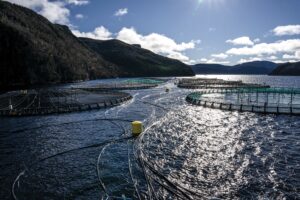David: So proportional representation has been shown to make governments or Parliaments much more inclusive. I know the Liberals at one point were in favour of that; is that worth looking at again?
CM: Well, originally the idea was to have the last — I think it was 2015 was going to be the last first-past-the-post election, and for a variety of reasons that didn‘t happen. But I think we need to be looking at all the different mechanisms for building a Parliament or a system that reflects more the will of Canadians. So whether it’s looking at electoral reform or I mean, in my case, I was just talking online about why can’t we do a hybrid Parliament where if you’re a parent and you’ve got to be home with a sick kid, you’re able to participate virtually? Systems are only going to change if you change the system; you can’t expect something better. I mean, you can tweak it. And so I think that these are important conversations. I also participated in something very fascinating, or I mean I saw it in action, and this was a citizen’s assembly. And this was a group of Canadians that were a representative sample of Canadians who decided to step up and participate in an assembly looking at online harm and how to address social media companies. And it’s a model that’s been used in different countries where you bring together, you know, regular Canadians to have real discussions about issues to provide input to government. And I think we need to do that more. I think we need to consult in a different way where we don’t … you know, in some ways, I think the tendency is to kind of have a sense of what the question is, maybe even the answer, and then bring people in, and they’re generally stakeholders or people who care greatly about this issue. And so you’re not getting a representative sample of Canadians. And I think that you just make better decisions when you bring democracy closer to people. To, you know, regular people who are going through their day, but who actually care greatly about these issues and issues that impact their lives. So whatever we can do to do that is something that I’m very committed to and making people recognize how important democracy is and how fortunate we are to live in Canada and to really own their democracy.
David: So looking at your two terms in office, and you were minister of two fairly large portfolios, Environment and Industry. Despite the trolling, what were the positives for you?
CM: You know, there’s so many positives being in politics. First of all, you’re a Member of Parliament, so you represent your riding and have the ability to make a difference in your local community, to respond to people who are, you know, it could be they’re trying to get a family member or spouse into the country and they’re having issues with the immigration system. Or, you know, we brought in a lot of refugees and helping them resettle, or through the pandemic supporting members of your community, little small businesses that were really struggling. So there’s the very local piece, and then there’s the huge piece. I feel extraordinarily fortunate that I was the first minister of Environment and Climate Change, where we had a government that prioritized climate change and we were able to do really big, difficult things like get a price on pollution. And I think a lot of people thought it could never be done. And now it’s been upheld in the Supreme Court. The legislation was upheld, the ability of the government to have a price on pollution because pollution knows no borders. I think those are really important things. Some of the most special moments, though, were definitely on the land with Indigenous Peoples. It was just so special going to places, whether it was Thaidene Nëné where we established a new national park, or going to a whole range of different places in Inuit Nunangat with Inuit. That was really special because you really appreciate your country, but also you hear from Indigenous Peoples what the land means to them and their relationship with the land. And I think that is part of reconciliation; until we can bridge this divide and really understand, you know, the perspectives of Indigenous Peoples and work with them — and the land is certainly very important to Indigenous Peoples, and often they are a lot closer than regular Canadians to to the land, to the animals, to the water — I think that, you know, there’s going to be this divide. So that was incredibly amazing, especially when we were able to protect some very special places based on a model of Indigenous Conservation Areas. So based on what the First Nations, Métis and Inuit peoples on the land wanted.
David: I’m curious about your thoughts on the UN Declaration on the Rights of Indigenous Peoples Act that passed in the last Parliament? What impact do you see that having on the environment?
CM: Look, I think it’s really critical. It’s not just a declaration. I mean, obviously having, you know, legislation, declarations are important. It’s actually, how do you approach things? So, you know, whether it’s working in real, true partnership with Indigenous Peoples to protect the land or on the development side. I was also I was the minister who was responsible for reforming how we approved major projects and really thinking about what is consultation with Indigenous Peoples? What is free and informed consent? Those are very critical issues. And it’s not just what the law says, it’s how do you approach things, and how do you get better outcomes? I always focus on outcomes, and I think you can get to a much better place if you’re actually working in real partnership with Indigenous Peoples. And that, I think, is is a critical part of the UN Declaration on the Rights of Indigenous Peoples.
David: In terms of the environment, we’re clearly in a decade that a lot needs to get done. Within that realm, what gives you hope?
CM: What gives me hope is I think people are reasonable at the end of the day. It was Jean Chrétien who said to me, “Canadians are reasonable, be reasonable!” And I always thought about that when we were trying to do hard things. You know, whether it was putting a price on pollution or bringing together a whole range of different stakeholders to protect nature or bring in a new Impact Assessment Act. I think, you know, people, they value the land, the water, the air. Canadians understand that climate change is real. I mean, I think at the end of the day, people want action, but it’s really up to governments to be brave. And so as optimistic as I am, I think that, you know, governments need to respond and they need to lead and they’re going to have to make some tough decisions. But in a way, it shouldn’t even be tough because there is no economy if you don’t have a planet to live on. But beyond that, I think we all we have the opportunity right now to choose solutions that will help ensure sustainability. That will mean cleaner air and cleaner water, but most importantly, will ensure a sustainable future for our kids and grandkids. So that’s what gives me optimism. I also am very optimistic because young people care greatly about the environment and climate change. I mean, it’s sad that they’ve had to grow up with the threat of climate change, and that’s always been present. But at the same time, they look at the world very differently. I have three kids and, you know, sometimes they just think it’s bananas, what adults might focus on without missing the key issue. The issue is climate change. We all need to wake up every day and figure out how we’re going to save the only planet we have.
David: Just keeping an eye on the clock and I know you need to get going. Just two quick questions for you. One is I was watching- I follow you on Twitter and was watching with interest as you were swimming the various coasts of Canada to celebrate a big birthday this year. We have a sauna and a lake and we plunge in our lake, but you actually swim distances in cold water. And I’m just curious where that started and and and why.
CM: Oh, I just love the water. It probably started, my love for, I guess, colder water swimming started when I was very, very young. My dad is Irish and all my cousins on his side, everyone lives in Ireland and we would go swimming in the Irish Sea. And I will tell you, the Irish Sea is not warm.
David: That’s bracing.
CM: And so I just, I love open water. I mean, I love pools, too. I was a competitive swimmer. But just being out in the water, whether it’s in lakes or oceans, and your head’s down and you can’t hear any noise except for kind of the churning of the water. I find it meditative. People try to do mindful meditation; I’m very terrible at that, but just get me in the open water where I can swim, I find that just very calming. And it also reminds me, it does remind me how fortunate we are to live in Canada. We have five Great Lakes, we’ve got three oceans. We have the longest coastline in the world and we really need to do everything we can to protect it. And also, we need a commitment to ensure that everyone has access to clean water, to swim, drink and fish. And so it’s just something I love, I will continue to do. It was actually very fun during the pandemic and I was like, Gosh, what can I do for my 50th birthday? And so swimming the Great Lakes and then adding as a bonus, I was able to do the Atlantic, Pacific and the Arctic — where I did not swim a long distance in the Arctic, because one of the rules of my swims for this challenge I set for myself was to make sure that I didn’t wear a wetsuit. So it was a shorter swim in the Arctic, but it was still great. And it was also for a good cause for a great organization, Swim Drink Fish, that’s committed to clean water, including working with Indigenous Peoples. So it was fun. It was a fundraiser.
David: That was off Baffin Island?
CM: It was off … I was in Nunavut and it was just outside of Auyuittuq, one of our national parks.
David: Wow. Well, that’s brave. Very brave. And my last question, which I ask everybody is, can you tell us your favourite place in Canada? It may be happy place that you go to in your mind or have fond memories of or a place you like to get away to?
CM: The Arctic is very, very special to me, in particular Inuit Nunangat because of the time I’ve spent there, not just in beautiful places, but also with Inuit. I’m so worried about these incredible places where you have ice, you have animals and you have an amazing culture. As you look at climate change, what is going to be the impact on these areas and then the people who live there? And will Canadians, my kids or grandkids in the future be able togo visit and meet with Inuit living in these places? I think that’s very special, but I think all our parks too. I love our national parks. I’ve been to so many of them. I’m not going to single any out; I think they’re all very special in their own unique ways.
David: Awesome. Well, Catherine McKenna, thank you so much for coming on the Explore podcast.
CM: It’s great. Thanks very much.




